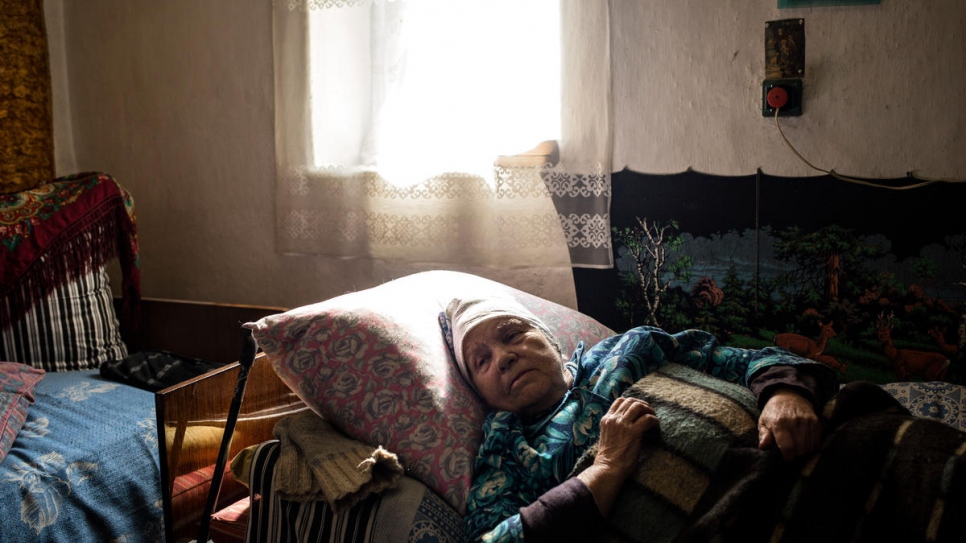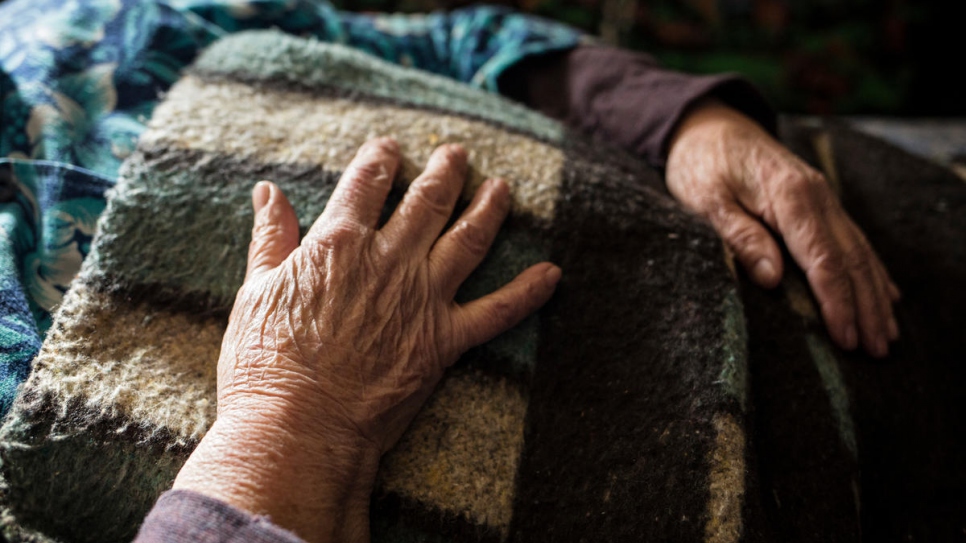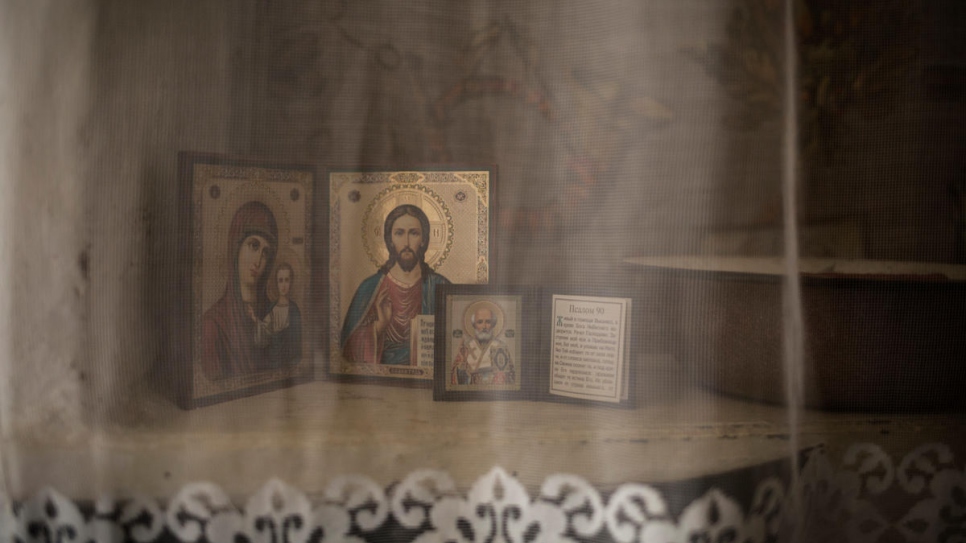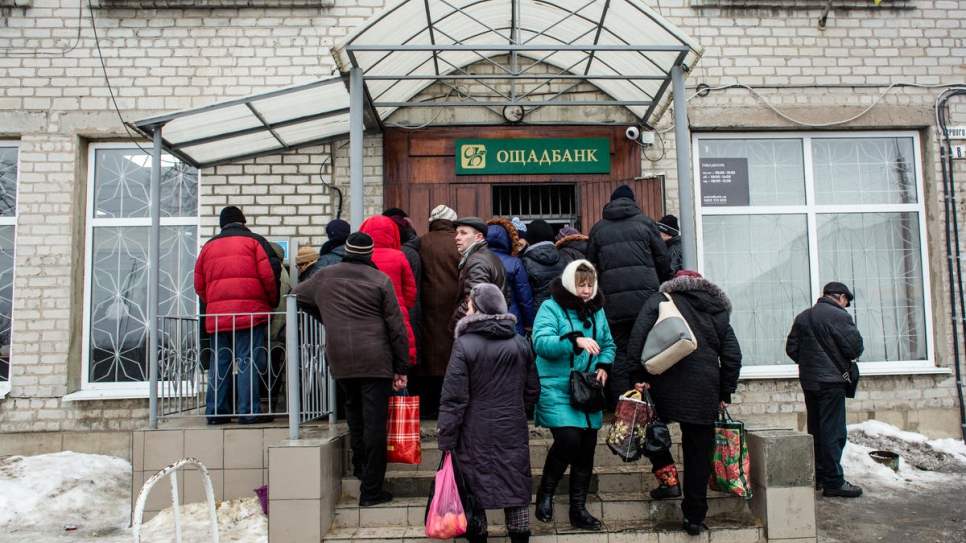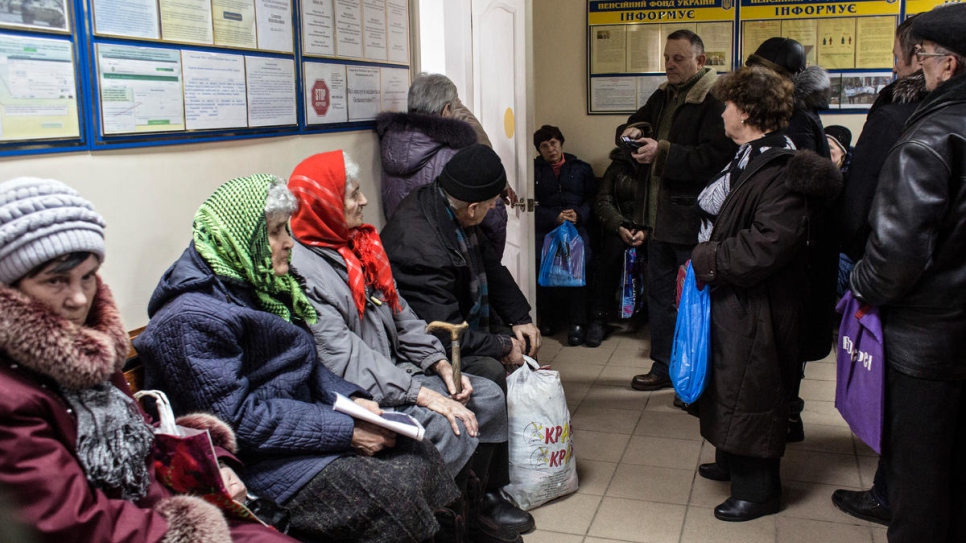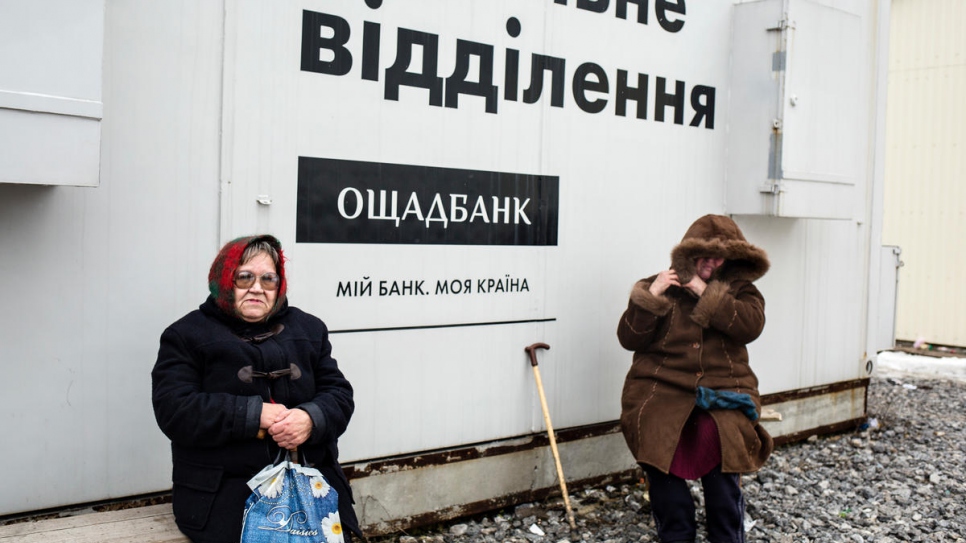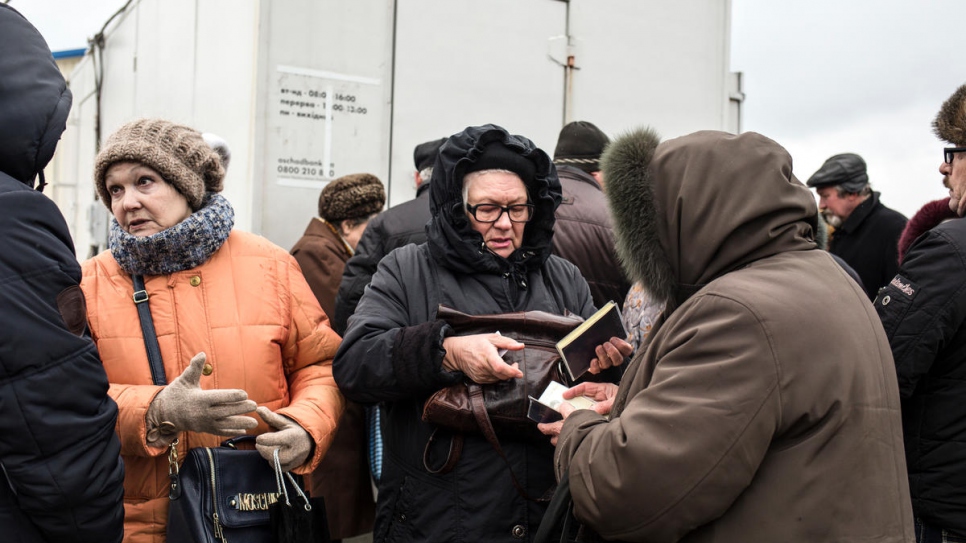Svetlana Shuko worked for decades in the local coal plant, earning a pension she hoped would see her through retirement.
Now, with armed conflict dividing Ukraine, eight months have passed since the 78-year-old received any cash.
Living with cancer and barely able to leave her home in the battered town of Starhonativka, it is only thanks to neighbours and the non-governmental organization Proliska that the pensioner receives help.
“Back when my husband was alive I was never afraid,” says Svetlana, pulling a blanket around her. Shelling has devastated the area since 2014 and is so intense at night that the vibrations wake her from her sleep. “Now I worry that if I need to take cover on the floor I will never get up again.”
"It is really difficult for me to keep going.”
To receive her pension, Svetlana must visit an office in the town every three months to prove her identity and go through verification procedures as an internally displaced person (IDP) with state authorities.
She and her husband moved to Starhonativka more than 20 years ago but never registered as residents. As a result, the pension office classifies her as internally displaced.
She finds the journey difficult because of her poor health, so avoids the once-a-day overcrowded buses and hires a taxi instead. “I go in the back seat, propped up with pillows. It is really difficult for me to keep going.”
Renting a taxi costs 800 Ukrainian hryvnya (US$30) for the return journey. That, on top of her medication and living costs, leaves Svetlana with little of her 1,700 hryvnya (US$64) pension, if she is able to collect it at all.
Svetlana is one of nearly 1 million elderly IDPs living in eastern Ukraine who struggle to receive their pensions. Many are too frail or isolated to make the journey to be verified. For those who do, there is the constant worry of shelling, landmines and long queues in freezing temperatures.
At Novotroitske checkpoint, where civilians cross into government-controlled territory, a group of elderly women are shivering in the snow. They are hoping to collect their pensions.
“I’ve had no pension since January,” says Nelia, 70, from the city of Dokuchaievsk. “I used to work in the quarry over there. Now I don’t understand why I am not receiving my money. I’ve spent two hours waiting at this checkpoint.”
Savik, who is 74 and from Donetsk, has spent two days waiting to be seen by officials at the Volnovakha pension office. Last night, he slept in a heated tent at the train station in order to keep his place in the queue. “I don’t understand,” he says. “We earned this pension.”
“I don’t understand. We earned this pension.”
With a terminal illness and children who fled to Russia after the conflict began, Svetlana is among those who rely on Proliska, a partner of UNHCR, the UN Refugee Agency. They help her to obtain medical treatment, heat her home, cook, clean, and be dealt with quickly at the pension office so that she does not need to endure an agonizing wait. Last year, the NGO with other partners helped UNHCR to provide 60,000 people with winter assistance.
However, life remains a challenge for Ukraine’s elderly IDPs.
Svetlana’s house is perched on a small hill that overlooks the town. Snow or heavy rain can make travel impossible.
“When the weather is dry, the car comes up the house,” she says. “When the weather is bad we just can’t go. Two weeks ago, when I fell and broke my arm, an ambulance got stuck in the snow. The doctors had to walk.”
Although the shelling fills Svetlana with fear and she is already worried about the month ahead – when she will have to renew her registration and travel for another exhausting course of chemotherapy – it is the death of her husband two years ago that weighs most heavily on her.
“We were married for 56 years. We met in Donetsk when the first Sputnik went into space. I went outside on the street and he asked me where I was going. So, we went to the park to watch this little circle in the sky. It used to be so nice, so peaceful and quiet.”
She sighs. “I can never replace him.”

